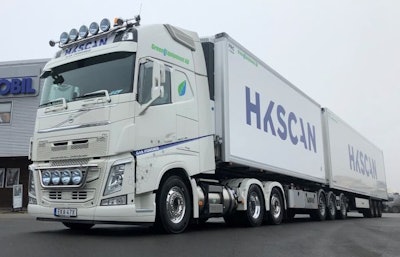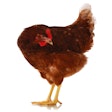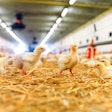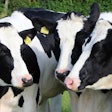
For the 2022 financial year just ended, Finland-based poultry and meat company HKScan reported an increase of more than 11% in net sales to almost EUR1.834 billion (US$1.096 billion). The figure covers continuing operations, following the recent divestment of its business in Estonia.
All three of the group’s current business units — in Finland, Sweden, and Denmark — reported improved net sales. These totaled EUR868 million, EUR745 million, and EUR220 million, respectively.
Despite the higher sales, total profit (Earnings Before Interest and Taxes; EBIT) for the past 12 months amounted to EUR10.1 million. This compares with EUR21.4 million for the previous fiscal year.
In order to secure supplies of meat, the firm reports needing to pay more to its suppliers, while there was a time lag before it could apply increased prices to its customers. Despite this, higher sales prices and greater production efficiencies partially offset the inflationary pressures. Costs of energy and logistics hit the group particularly hard during the third quarter of 2022.
For its operations in Finland, Sweden and Denmark, HKScan reports comparable EBIT figures of EUR3.4 million, EUR16.6 million, and EUR1.4 million, respectively. The business units achieved comparable figures of EUR8.5 million and EUR22.9 million for Finland and Sweden, respectively, in the 2021 fiscal year. For the same period, this metric was reported as zero for the Danish operation.
To the Annual General Meeting, the Board of Directors will propose that no dividends should be paid for 2022.
Fourth-quarter business developments
In mid-December, HKScan announced it had signed an agreement to sell its Baltic business. Subject to approval by the competition authorities in Estonia and Latvia, the firm expects the transaction to close in the second half of this year.
Or the October-December 2022 period, net sales for HKScan’s continuing operations were EUR513.6 million. This represented a year-on-year increase of 14.8%, which was attributed mainly to the company’s ability to pass some of its higher costs on to its customers. While net sales increased in all markets and through all channels, the improvements were particularly strong for food service sales.
For continuing operations, overall Group EBIT for the three months was EUR5.1 million, which compares with EUR11.6 million for fourth quarter of the previous year. Excluding the divested Baltics business, comparable EBIT from HKScan was EUR3.1 million in the quarter — down sharply from EUR11.3 million at the same point of 2021.
HKScan attributes the decline in comparable EBIT to more expensive energy and logistics coinciding with weaker demand in its home markets.
Planning for higher profitability
For the coming year, HKScan forecasts improving profitability for its continuing operations. Despite the uncertainties over future cost inflation and consumers’ purchasing power, the group reports that energy and logistics costs are now lower than at their peak in 2022.
This year, it is looking to build on the 25% growth in sales achieved through the food service channel last year. Retail sales of its branded products were up by 36% in Denmark, while positive developments were also registered in Finland and Sweden.
Despite these bright points, the group’s interim CEO Juha Ruohola stressed that profitability was not satisfactory, and that improving margin is among HKScan’s top priorities on 2023. It will also continue to improve production efficiencies, and focus on its core businesses.
Throughout the HKScan operations, this will mean the focus will be on cost control, increasing productivity, and optimizing the product portfolio in line with consumer demand.
Among the group’s developments in 2022 highlighted by Ruohola was the updating of its responsibility program, building a carbon-neutral food chain.
Key objective of this program cover the wellbeing of nature and people, particularly related to the climate, packaging, biodiversity, and the safety and wellbeing of employees.
On worker safety, the Group reduced its accident rate by 25% last year, reported the interim CEO.
More on HKScan
With annual slaughterings of around 93 million, HKScan is among the largest 40 poultry companies in Europe, according to WATTPoultry.com’s Top Poultry Companies survey.
In December of 2022, HKScan sold its Baltic subsidiaries to Estonia-based food company, Maag Grupp.
During the previous month, it was announced that Jouni T. Laine will leave the company in early 2023. At the time, he was HKScan’s EVP for Food Solutions Unit, and a member of the group executive team.
HKScan announced in September last year that Juha Ruohola had been appointed as interim CEO of the company.


















